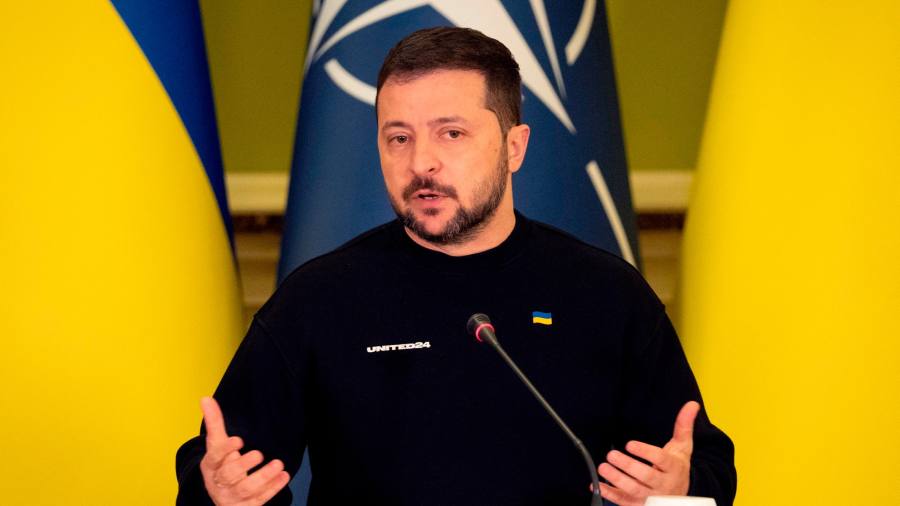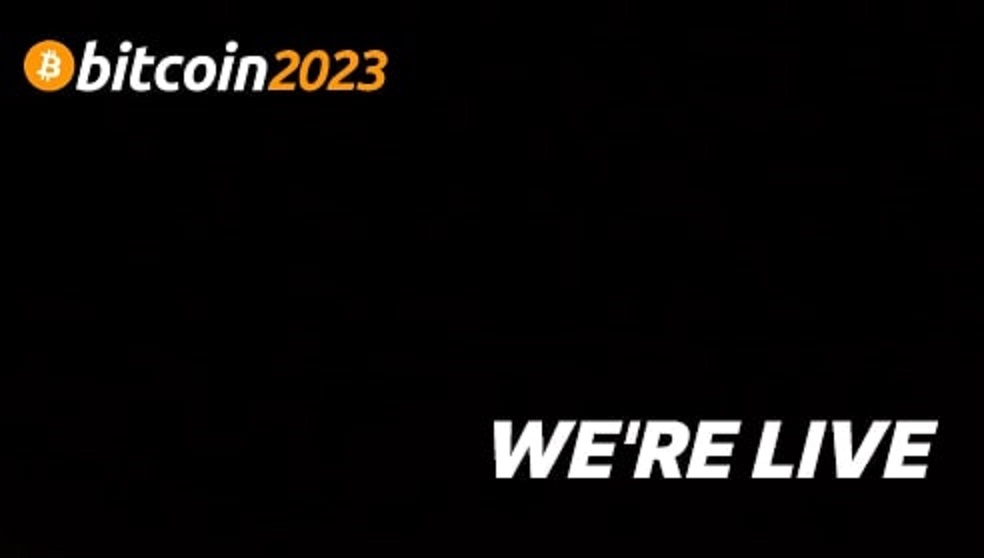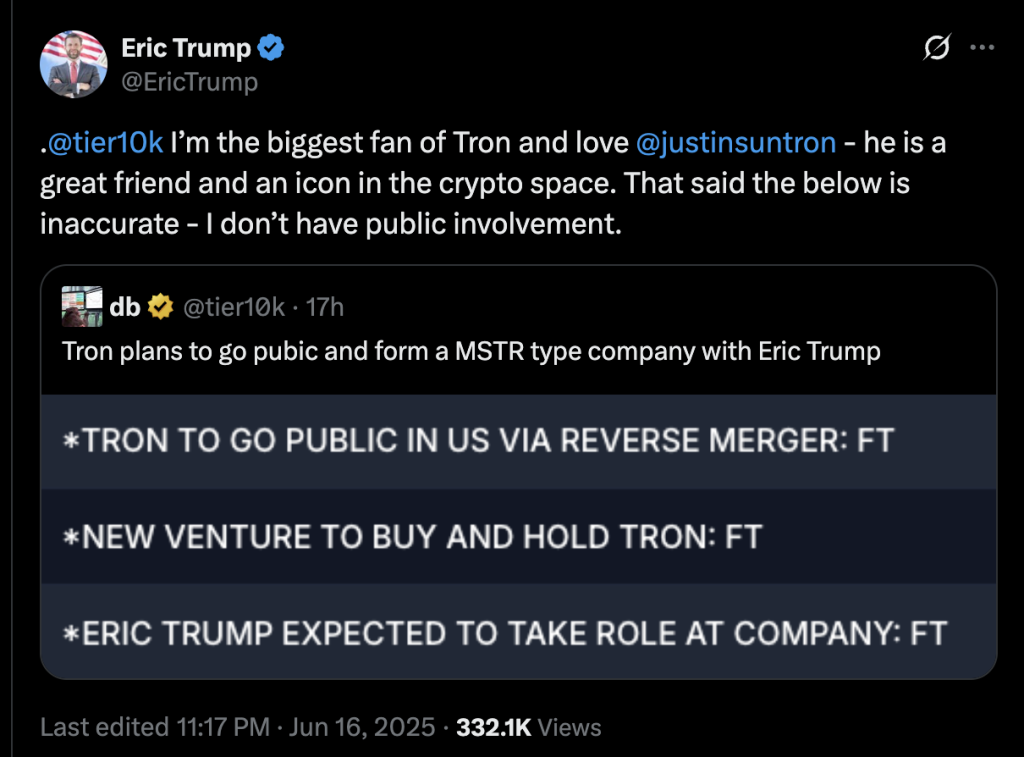Volodymyr Zelenskyy has arrived in Saudi Arabia en route to the G7 summit in Japan as Kyiv seeks to broaden international support beyond its western allies.
The Ukrainian president landed in Jeddah, which is hosting an Arab League summit, on Friday afternoon. Four people briefed on the preparations for the G7 meeting said he would travel to Hiroshima this weekend.
Zelenskyy said on Twitter he was beginning his “first-ever visit to the Kingdom of Saudi Arabia to enhance bilateral relations and Ukraine’s ties with the Arab world”.
His journey comes as Ukraine and its allies seek greater support from countries in the global south — several of which have not joined western moves to punish Moscow — at a crucial time in the war, with Kyiv poised to launch a counter-offensive.
Zelenskyy said his agenda included “temporarily occupied territories”, a “peace formula” and energy co-operation. He added that Saudi Arabia “plays a significant role and we are ready to take our co-operation to a new level”.
Saudi Arabia has good relations with the Kremlin, co-operates with Moscow on oil production cuts through Opec+ and has offered to help mediate in the conflict.
Zelenskyy is also seeking to bolster western support for Ukraine with his trip to the G7 in Hiroshima, first reported by the Financial Times.
On Friday, in a joint statement about Ukraine, the G7 leaders agreed to support Kyiv for “as long as it takes” and to increase pressure on Moscow through additional sanctions measures, including efforts to curb its diamond exports.
But the statement did not include an earlier pledge to block Russian energy export routes that have been temporarily shut down by Moscow since the war began.
The watering-down of that vow, from “preventing the reopening of avenues previously shut down by Russia’s weaponisation of energy” to promising that “Russia is no longer able to weaponise energy against us” came after the G7’s EU members demanded it be changed, three people briefed on the negotiations told the FT.
Zelenskyy’s attendance could complicate Japanese prime minister Fumio Kishida’s efforts to ensure that the summit, which is being held in Asia for the first time in seven years, would not focus solely on the war in Ukraine.
Kishida wants the gathering to focus on security issues in the Indo-Pacific region and outreach to developing countries as well as the Ukraine conflict. The US also wants to have a strong focus on the Indo-Pacific and ensure that the countries can demonstrate as much unity as possible on their approach to China.
Zelenskyy is expected to redouble efforts to secure increased military support from western allies, including supplies of US-made F-16 fighter jets, which require the blessing of Washington.
Ukraine defence minister Oleksiy Reznikov said the jets would be Zelenskyy’s main topic of discussion in Japan. “The aerial platform should be part of the air defences of Ukraine,” Reznikov told the FT. “Air defences is our priority number one.”
The minister said western allies had already formed coalitions that later approved the supply of tanks, artillery and infantry fighting vehicles. “The next stage should be ‘bird’ coalition,” Reznikov said, in reference to fighter jets. The UK and the Netherlands this week said they were working to build an international coalition to help Ukraine procure F-16s.
The Ukrainian president is also expected to discuss efforts to promote his 10-point peace plan for ending the war, which calls for a full Russian withdrawal and the restoration of Ukraine’s territorial integrity. A rival Chinese proposal does not refer to these as prerequisites for peace talks.
Oleksiy Danilov, secretary of Ukraine’s National Security and Defence Council, did not confirm Zelenskyy’s attendance at the Hiroshima summit, but told state TV on Friday that “very important things will be decided there, so the physical presence of our president is absolutely important in order to defend our interests”.
The Japanese government had previously said that Zelenskyy was expected to participate in the event via video conference.
His international travel plans during the war have been kept secret until the final moment because of security concerns.
Zelenskyy has not visited Asia since the conflict began but he made previously unannounced visits to the UK, France, Italy and Germany this week.
Chris Johnstone, a Japan expert and former Pentagon official, said Zelenskyy’s appearance at the G7 would reinforce Kishida’s view that events in Europe and Asia were “deeply interconnected”.
Japan has taken a strong stance in support of Ukraine, including imposing sanctions on Russia, partly because it wants European support in the face of the rising challenge from China.
“It’s also a challenge to Europe, to be equally strong in pushing back [at] Chinese behaviour,” said Johnstone, who is now at the CSIS think-tank in Washington.
Canada on Friday joined the other G7 members in imposing a further round of sanctions on Russia for its suspected human rights abuses and to penalise individuals and entities that provide military technology to the Russian armed forces.
Credit: Source link











